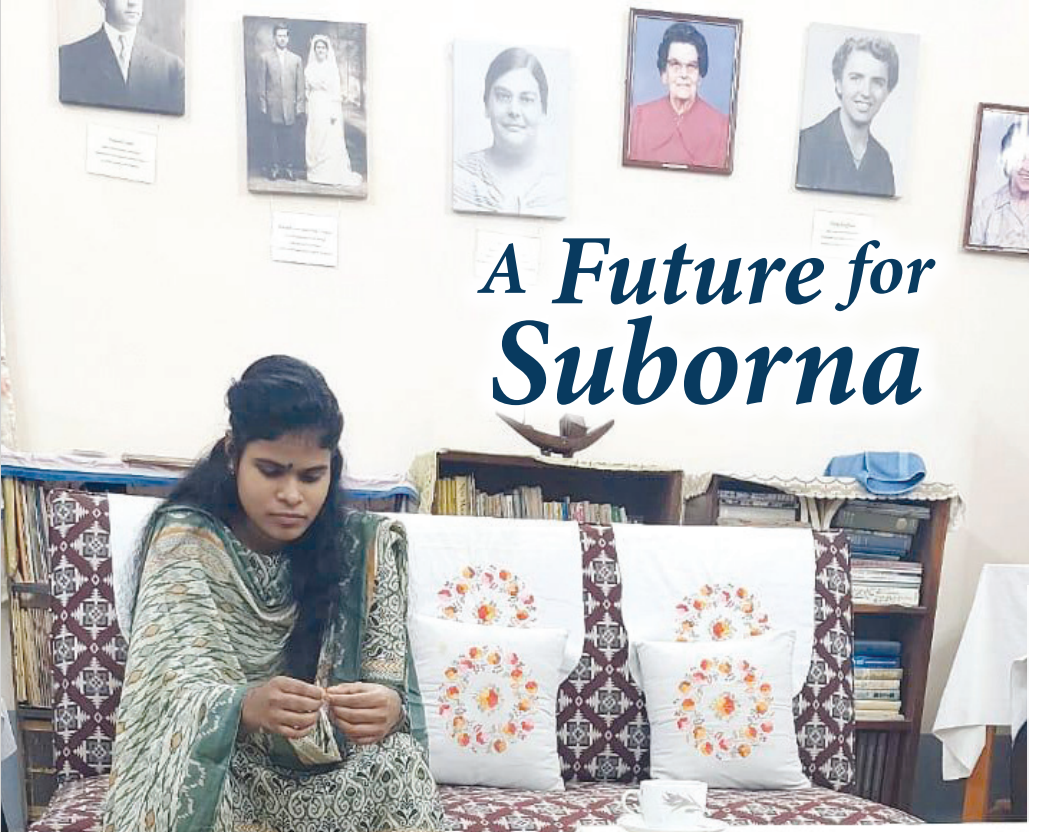
Dr. John Theotonius Costa steps out a large gray medical van. He and his team are in a small village in North Western Bangladesh, Naogaon district. It’s been a drive, bumpy on the main roads and bumpier still on the dirt ones but Dr. John and the medical staff are used to it. They’re here for a medical camp, a regular outreach program based at the Khanajpur Mission Health Services (Eye Hospital), 100 kilometers away (about 62 miles). They’ve healed many people from common but preventable, easily treatable eye issues, along with other basic medical needs. The people are too remote from a hospital to make the journey or too poor to pay for the necessary procedures. Often enough, both.
Most go on dealing with their worsening conditions. Losing more and more of their eyesight week by week. Walking into this village, Dr. John soon sees an elderly man walking toward him, assisted by a young girl. His guide.
Too far from help and too poor to get it, he’s going blind. Dr. John and the team have seen innumerable cases like this. It’s the cooking, solid fuel (mostly animal dung) used for the fire stoves they have in their homes. Most of the stoves are unflued, so the smoke, piling up in the low roofs of their homes, damages the eyes. Women, who do most of the cooking and are indoor most often, get it the worst, but if you live in a home like that for long enough, anyone, man or women, is bound to have eye issues. In this case, cataracts.
“How much can you afford”, Dr. John asks.
“Nothing,” the man responds. “We are so poor.”
Dr. John, half expecting this answer, nods his head and looks around. Most of the villagers are subsistence farmers. Each family has a small plot of land, enough to harvest rice, some to eat, some to sell, but hardly enough to make a good living. Enough just to keep living. Dr. John looks around and sees the dung patties, caked on sticks in globs like beads on a string, or stuck against the walls of homes for drying, a handprint in the middle of each one. Soon to be used for cooking, and soon to cause more eye or other health problems too. It’s the way of life here.
“We will do it for free.” Dr. John says. Suresh Pahan is the elderly man’s name, and he and the girl holding on to him, smile, relieved. Mr. Pahan, and the girl show the team to his home, and they begin bringing in the medical equipment. There is no electricity.
An hour later, Mr. Pahan is lying in his bed, bandages over his eyes. A successful surgery, and he’ll have nearly 100% restored vision soon. Transformative, life changing, for him, and for the girl to whom he acts as ward.
Before the medical bags were packed, Mr. Pahan has another favor to ask.
“Suborna is my granddaughter. She is very good and smart. But she is poor and parentless. An orphan. Can you help her? Do you have a small job for her?”
Suborna was standing there in the room, and Dr. John turns to her.
“How much have you studied?”, he asks.
“I passed the grade 12 exam,” she says, and explains how, without going to school much, she borrowed books and studied on her own to pass the exam. She wanted to be a nurse, but again, the common thread, the reason why Dr. John was here in the first place. Too poor. Finally, she says, “I don’t want to lose my future.” He doesn’t have an answer right away. But he would come back in a week to check on Mr. Pahan, and maybe he’d have one by then.
On Dr/ John's return, Mr. Pahan is insistent. Suborna has a small future in the village. Her sister, her only other family member, refused to support her school ambitions, and likely couldn’t. Their plan was to simply wed her off to another man. And there she would be, in the same village, piling up dung patties to cook with, and Dr. John, or someone like him, would come and take care of her cataracts sooner or later. “You have done a great job for me now,” Mr. Pahan says. “I can see the world now, and I can work. So please, can you do something for this parentless orphan girl?”
“Okay,” Dr. John says. “Let me try.”
And soon Suborna is taken to Bogura, where Dr. John helps run the Bogura Christian Mission Hospital. In 2020, she begins her studies as a student, staying at the girl’s hostel, learning to be a nurse and assistant. And she proves herself to be consistently sharp and determined.
Still in contact with Mr. Pahan, he continues to ask Dr. John to take care of Suborna. “Take care of her like she’s your own daughter,” he says.
Here, she also learned about Jesus, and prays now with the rest of the staff during their prayer time, fully accepted into the Christian community at the hospital. At Bogura, Suborna excels, making new friends, completing her training on time, funded in no small part by Dr. John saving money from his own salary. By 2023, Suborna graduates, and follows Dr. John back to Khanjanpur to work in the eye clinic.
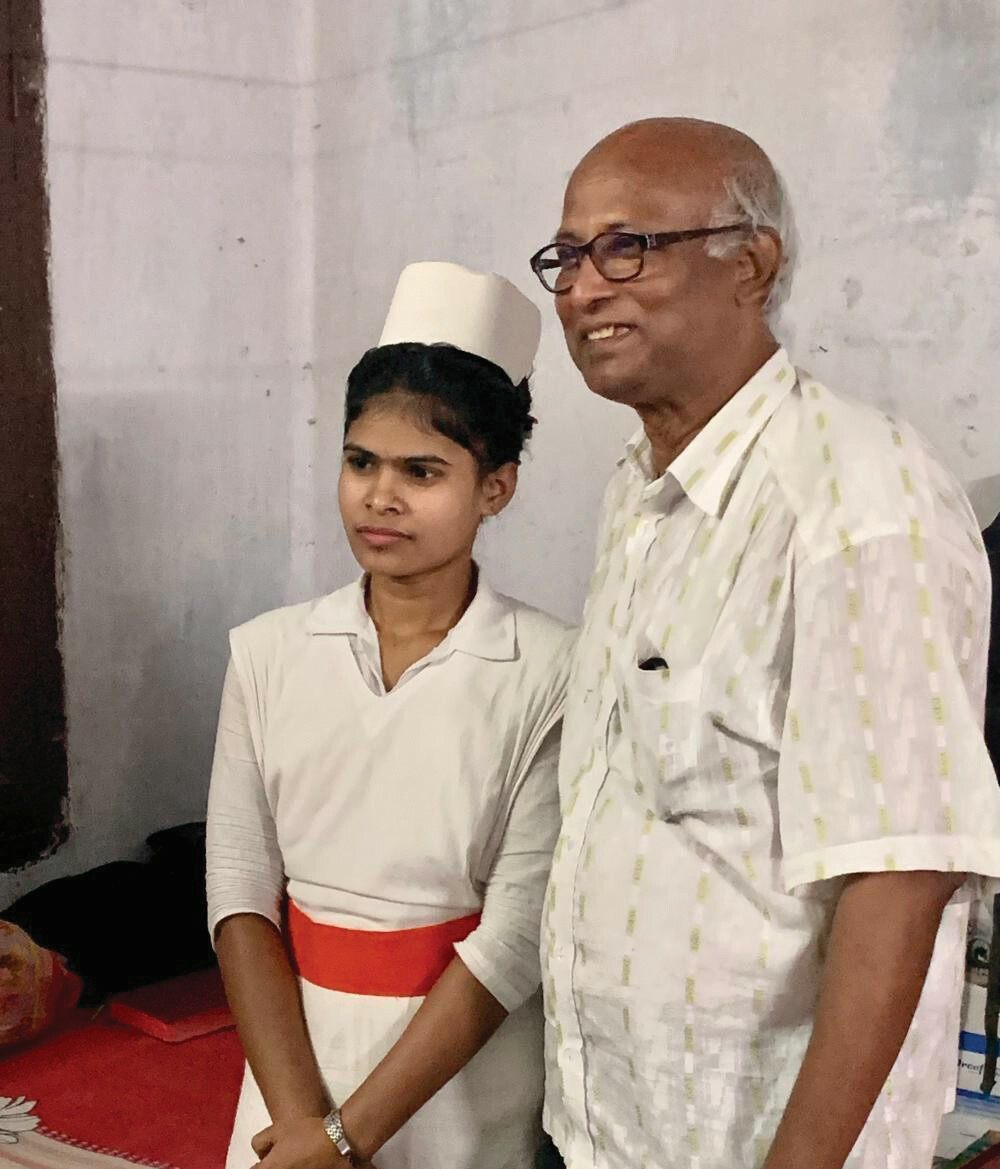
In Khanajanpur, Suborna is learning more specialties with eye care, and she’s shadowing expert ophthalmologist. Finally, not long after she arrives in Khanjanpur, with a big smile on her face, she receives her first salary. The first salary she has ever received in her life.
This is where Suborna still is, working diligently at our mission eye hospital, being trained in medical work, and discipled among many Christian witnesses in her life. And Dr. John wants to see her continue to flourish. “Please, stay here,” Dr. John tells her. “Be prayerful for your heart, be honest, be humble, and the Lord will provide for you. It is my desire that you be like the other senior ophthalmologists.”
And Dr. John plans to make good on that desire, as he’s actively looking for schools for her now, and preparing her for the entrance exams. “I must give thanks to the Lord for being able to give this one orphan a good life, a good way of life. Finally, our Lord knew that this was my desire and hope.”
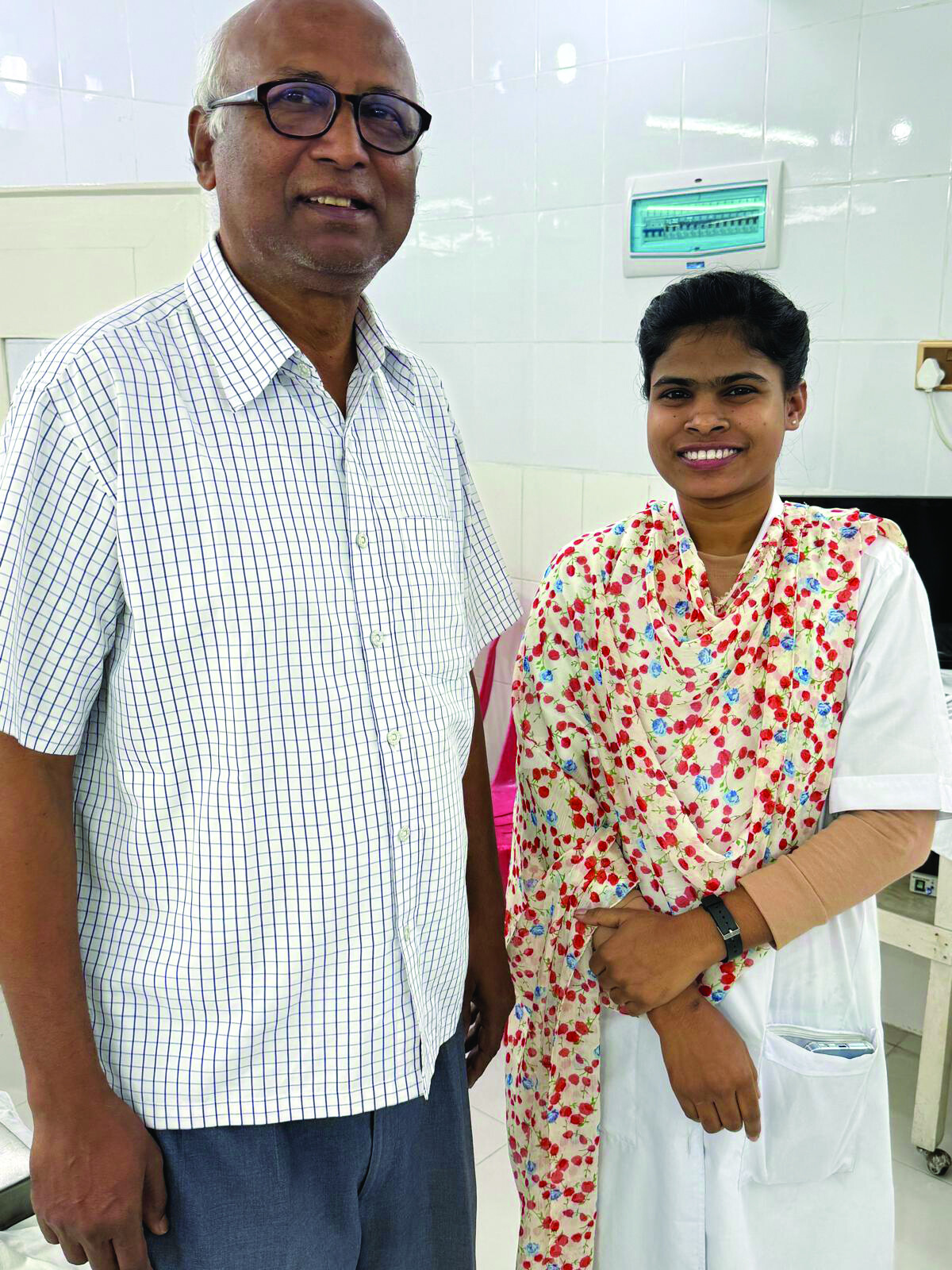
Stories like this are happening every day at our Bangladesh mission. Support our Bangladesh medical ministries and pastors here: Give
The Global Advocate, Winter 2025



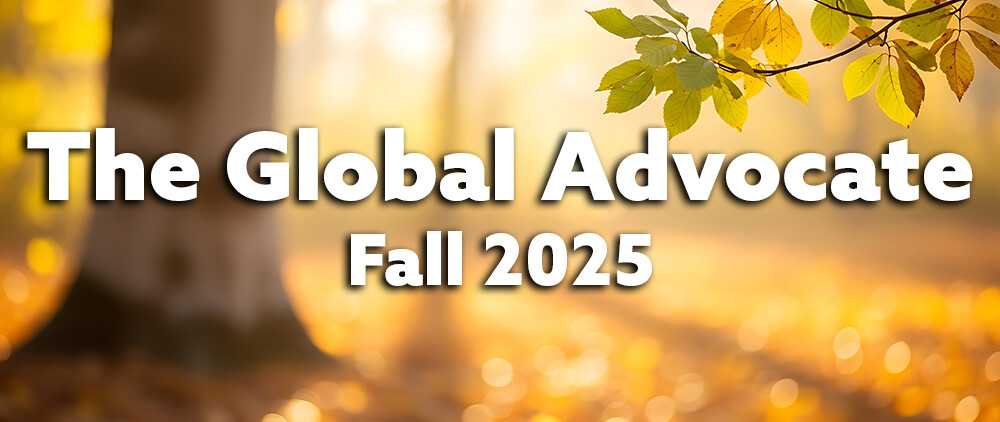
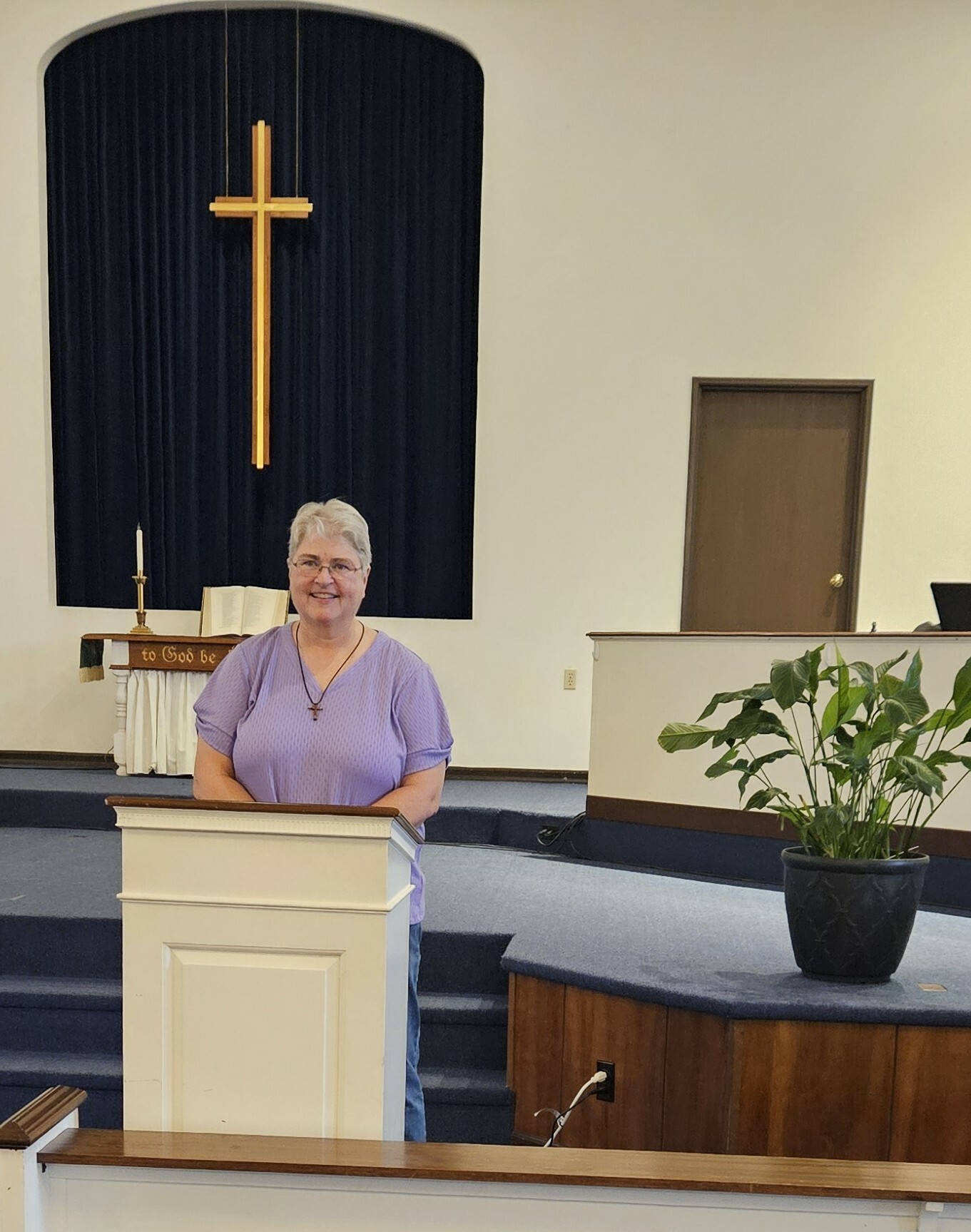
Login To Leave Comment